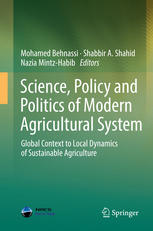

Most ebook files are in PDF format, so you can easily read them using various software such as Foxit Reader or directly on the Google Chrome browser.
Some ebook files are released by publishers in other formats such as .awz, .mobi, .epub, .fb2, etc. You may need to install specific software to read these formats on mobile/PC, such as Calibre.
Please read the tutorial at this link: https://ebookbell.com/faq
We offer FREE conversion to the popular formats you request; however, this may take some time. Therefore, right after payment, please email us, and we will try to provide the service as quickly as possible.
For some exceptional file formats or broken links (if any), please refrain from opening any disputes. Instead, email us first, and we will try to assist within a maximum of 6 hours.
EbookBell Team

5.0
60 reviewsThis book arises from a 2011 international conference entitled Climate Change, Agri-Food, Fisheries and Ecosystems: Reinventing Research, Innovation, and Policy Agendas for an Environmentally and Socially-Balanced Growth (ICCAFFE2011), organized by the North-South Center for Social Sciences (NRCS) in collaboration with the Deutsche Gesellschaft für Internationale Zusammenarbeit (GIZ) GmbH, Germany and the Institute for Research and Development (IRD), France. Coverage focuses on the agricultural sector and helps improve understanding of the relationships between agriculture and the environment and between human communities and nature, so as to sustainably manage agricultural development. The contributors analyze the interdependence between sustainable agricultural development and environmental, economic and social dynamics; assess the impacts of soil degradation on agricultural productivity; present ways to enhance livestock production and recommend mechanisms for managing links between agro-biodiversity, climate change and livelihoods. Part I examines sustainable agriculture development and environmental, economic and social dynamics, addressing topics such as global climate change, agriculture and challenges including socio-economic factors, adaptation, poverty reduction and water management. Part II covers the impacts of soil degradation on agricultural productivity and discusses the use of expert systems to assess and manage degraded lands, agricultural productivity, land suitability and rehabilitation. Part III focuses on livestock production enhancements, such as feed resources and supplemental feeds for animals and capacity building for women in dairy management. Part IV shares the outcomes of research in agro-biodiversity, climate change and livelihoods, addressing topics such as co-management of forests, carbon consumption models, biodiversity conservation and carbon sequestration and scarce mangrove forests. Current environmental and agro-ecological research focuses on understanding the cause-consequence relationships between specific agricultural practices and land use and the responses at different levels of ecosystems. This book is intended to contribute to this discussion.